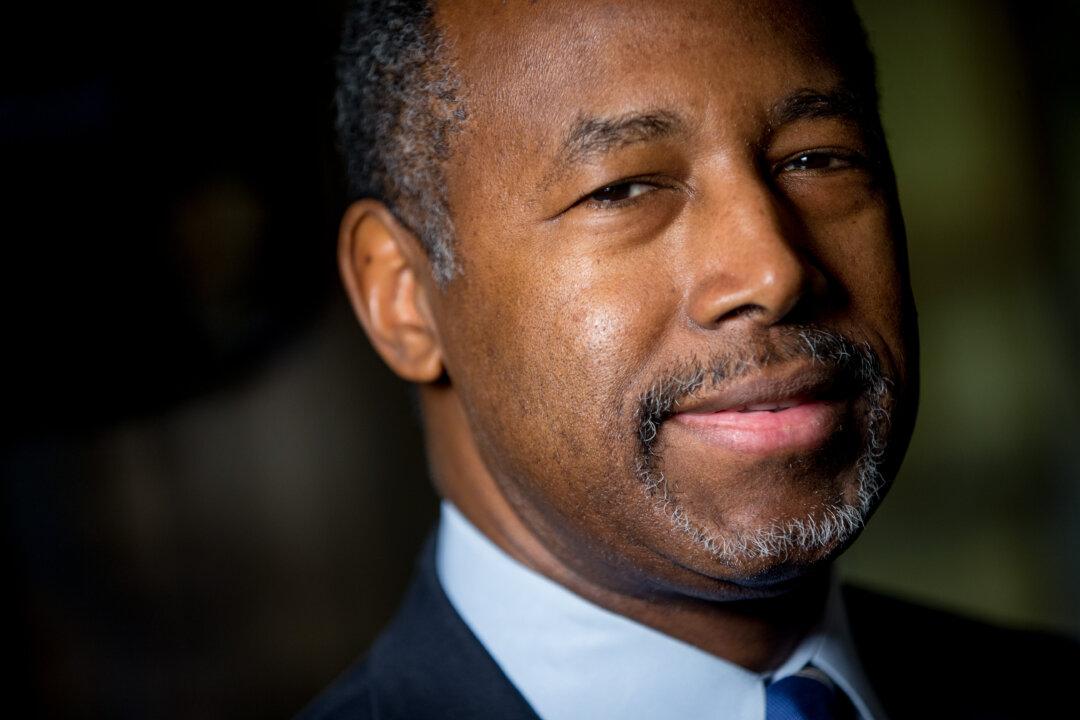UPPERCO, Md.—Republican presidential candidate Ben Carson said Wednesday morning he is moving toward a major shake-up of his struggling campaign, with less than six weeks to go until early voting begins to select party nominees.
Yet by Wednesday evening, he tried to steer away from that message, announcing that all is well in the Carson camp.
In a Wednesday morning interview with the Associated Press at his Maryland home—conducted without the knowledge of his own campaign manager—Carson said “personnel changes” could be coming, suggesting he would consider sidelining his top aides.
“Everything. Everything is on the table,” he said of potential changes. “Every single thing is on the table. I’m looking carefully.”
Carson’s longtime business adviser Armstrong Williams put it more bluntly: “Dr. Carson is back in charge, and I’m so happy to see that,” he said. Williams himself has publicly feuded with the paid political professionals brought in to run Carson’s campaign.
Following an afternoon meeting with some of his paid advisers Wednesday—a group that did not include Williams—Carson said in a statement that while he has 100 percent confidence in his campaign team, “we are refining some operational practices and streamlining some staff assignments to more aptly match the tasks ahead.”
The statement added that his senior team “remains in place with my full confidence, and they will continue to execute our campaign plan.”
Campaign manager Barry Bennett was not aware of Carson’s statements about potential changes until told by The Associated Press. He later texted: “No staff shake-up.”
The apparent rift between Carson, Williams and the paid campaign staff comes after his weeks-long slide in polls. The political newcomer—a celebrated pediatric neurosurgeon—briefly surged to the top of the GOP field in October, riding public appeal for more anti-establishment candidates, while making headway with Christian and conservative voters.
With the spotlight came scrutiny. Carson publicly lashed out at media reports questioning details of his celebrated autobiography.
Terrorist attacks in Paris and California shifted the focus of the race to foreign policy and national security, sometimes highlighting Carson’s lack of experience. Another challenge: He is soft-spoken in a race dominated by media-savvy, tough-talking figures including real estate mogul Donald Trump and Texas Sen. Ted Cruz.
“I certainly don’t expect to get through a campaign without some scratches and bruises,” Carson said. “That’s the nature of the beast.”
Then came the internal disarray.
Carson had raised $31 million by the end of September, more than any other Republican in the race, but he’s outpaced the competition on spending—mostly on fundraising costs rather than critical political infrastructure.
“I recognize that nothing is perfect,” Carson said. “And, yes, we’ve had enormous fundraising, but that requires that you be efficient in the way you utilize the funds. And, yes, we are looking at all those things.”






